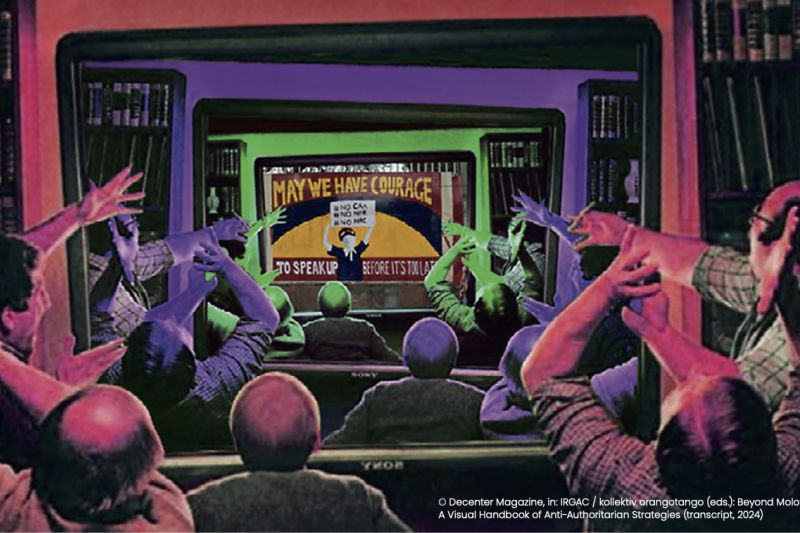Authoritarian and fascist tendencies are currently on the rise in many parts of the world. Consider the US government launching a mass hunt for eleven million illegalized workers and levelling a continuous round of war against the poor, right-wing and anti-migrant politics gaining further strength in most European countries, the rise of Hindu-nationalism in India, or libertarian authoritarianism in Argentina. While these developments cannot be analyzed without attending to their specifics, it becomes clear that the reductive focus on right-wing or authoritarian parties does not help to understand (and strug-gle against) the current protofascist conjuncture of ever-expanding repression and carcerality in societies of aggravated neoliberal crisis. Neither does it unveil the nexus of normalized state racism and right-wing extremism.
In this talk, I discuss the current conjuncture of late fascism by drawing on black radical and anti-colonial readings of fascism, and its relation to colonialism, capitalism and imperialism. I focus especially on anti-colonial feminist readings and bring these into conversation with contemporary abolitionist thought and practice to sketch out the (im-)possibilities of anti-fascist horizons.

Vanessa E. Thompson ist Associate Professor und Distinguished Professor for Black Studies and Social Justice am Department of Gender Studies an der Queen’s University in Kanada. Zuvor war sie Wissenschaftliche Mitarbeiterin an der Europa-Universität Viadrina und der Goethe-Universität. Sie forscht und lehrt im Bereich der Black Studies und antikolonialen Theorien, mit besonderem Fokus auf Rassismus und staatliche Gewalt, Abolitionismus, Feminismus und soziale Bewegungen. Sie arbeitet mit abolitionistischen Bewegungen in Europa und darüber hinaus. Aktuelle Publikationen sind „Policing the surplus crisis. Carceral racism and abolitionist resistance in German” (Ethnic and Racial Studies, 2025) sowie “Surplus people of the world unite! On borders, policing, and abolition”, in: Border Abolition Now (Pluto Press, Hrsg. Riva et al., 2024).
Das CGC bemüht sich um eine möglichst gute Barrierefreiheit seiner Veranstaltungen. Wenn Sie Assistenz benötigen, um an unserer Veranstaltung teilzunehmen, teilen Sie uns Ihren Unterstützungsbedarf bitte bis zum 04.11.2025 per Mail an cgcentrum@soz.uni-frankfurt.de mit. Wir bemühen uns daraufhin, die aufgetretenen Barrieren im Rahmen unserer Möglichkeiten zu mindern.
Der Raum ist über Aufzüge erreichbar. Es gibt zwei barrierefrei Toiletten im 1. Stock (1.G40s und 1.G40h).
Auf der Etage befindet sich eine All Gender-Toilette (1.G40n) mit Steh- und Sitzklos. Im 2. Stock des CGC befindet sich außerdem eine FLINTA*-Toilette (2.G40q).

